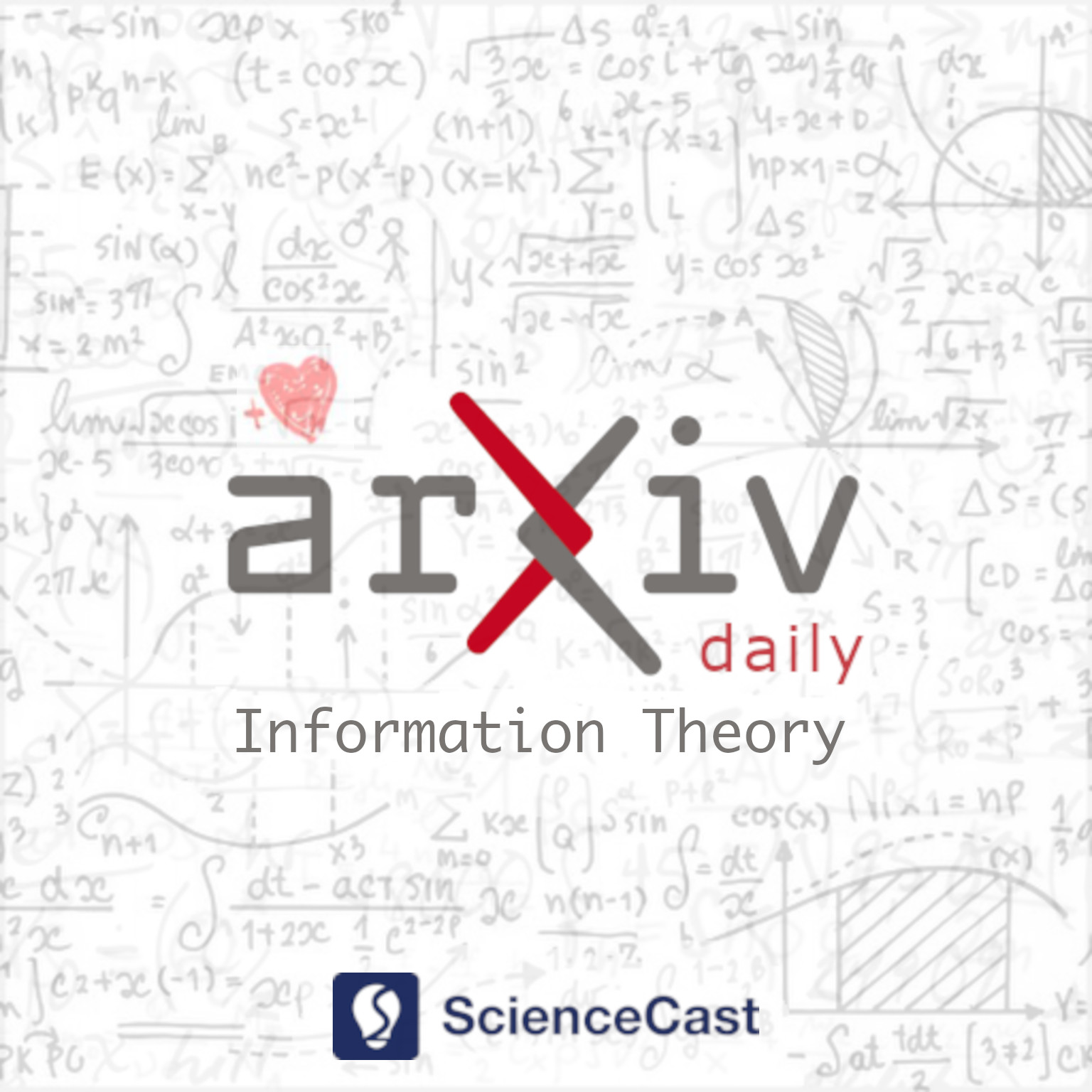
Information Theory (cs.IT)
Thu, 08 Jun 2023
1.A Graph-Based Approach to the Computation of Rate-Distortion and Capacity-Cost Functions with Side Information
Authors:Deheng Yuan, Tao Guo, Zhongyi Huang
Abstract: We consider the point-to-point lossy coding for computing and channel coding problems with two-sided information. We first unify these problems by considering a new generalized problem. Then we develop graph-based characterizations and derive interesting reductions through explicit graph operations, which reduce the number of decision variables. After that, we design alternating optimization algorithms for the unified problems, so that numerical computations for both the source and channel problems are covered. With the help of extra root-finding techniques, proper multiplier update strategies are developed. Thus our algorithms can compute the problems for a given distortion or cost constraint and the convergence can be proved. Also, extra heuristic deflation techniques are introduced which largely reduce the computational time. Numerical results show the accuracy and efficiency of our algorithms.
2.DFT-Based Channel Estimation for Holographic MIMO
Authors:Antonio Alberto D'Amico, Giacomo Bacci, Luca Sanguinetti
Abstract: Holographic MIMO (hMIMO) systems with a massive number of individually controlled antennas N make minimum mean square error (MMSE) channel estimation particularly challenging, due to its computational complexity that scales as $N^3$ . This paper investigates uniform linear arrays and proposes a low-complexity method based on the discrete Fourier transform (DFT) approximation, which follows from replacing the covariance matrix by a suitable circulant matrix. Numerical results show that, already for arrays with moderate size (in the order of tens of wavelengths), it achieves the same performance of the optimal MMSE, but with a significant lower computational load that scales as $N \log N$. Interestingly, the proposed method provides also increased robustness in case of imperfect knowledge of the covariance matrix.
3.Fully Robust Federated Submodel Learning in a Distributed Storage System
Authors:Zhusheng Wang, Sennur Ulukus
Abstract: We consider the federated submodel learning (FSL) problem in a distributed storage system. In the FSL framework, the full learning model at the server side is divided into multiple submodels such that each selected client needs to download only the required submodel(s) and upload the corresponding update(s) in accordance with its local training data. The server comprises multiple independent databases and the full model is stored across these databases. An eavesdropper passively observes all the storage and listens to all the communicated data, of its controlled databases, to gain knowledge about the remote client data and the submodel information. In addition, a subset of databases may fail, negatively affecting the FSL process, as FSL process may take a non-negligible amount of time for large models. To resolve these two issues together (i.e., security and database repair), we propose a novel coding mechanism coined ramp secure regenerating coding (RSRC), to store the full model in a distributed manner. Using our new RSRC method, the eavesdropper is permitted to learn a controllable amount of submodel information for the sake of reducing the communication and storage costs. Further, during the database repair process, in the construction of the replacement database, the submodels to be updated are stored in the form of their latest version from updating clients, while the remaining submodels are obtained from the previous version in other databases through routing clients. Our new RSRC-based distributed FSL approach is constructed on top of our earlier two-database FSL scheme which uses private set union (PSU). A complete one-round FSL process consists of FSL-PSU phase, FSL-write phase and additional auxiliary phases. Our proposed FSL scheme is also robust against database drop-outs, client drop-outs, client late-arrivals and an active adversary controlling databases.